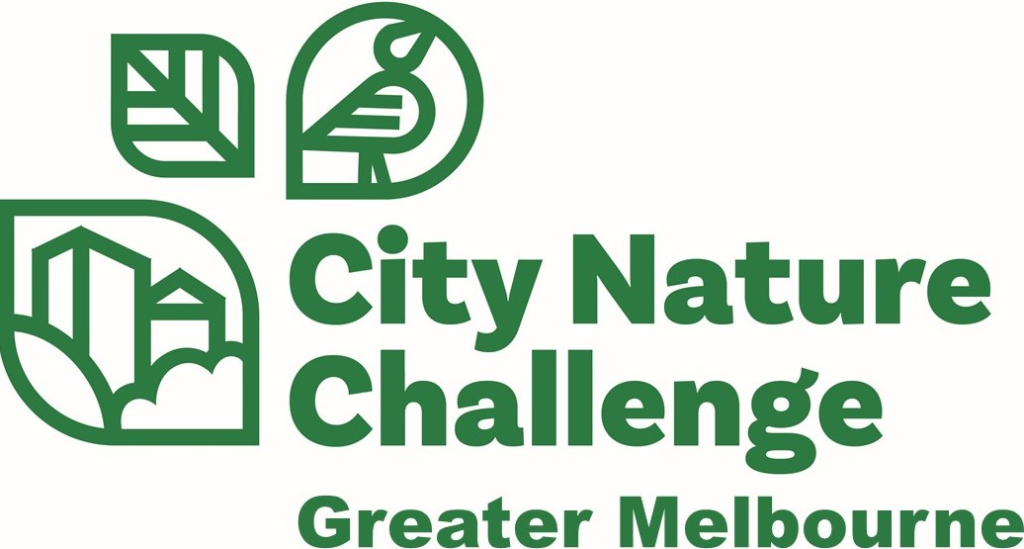
Friday 26th April to Monday 29th April 2024
In 2024, 25 councils across metropolitan Melbourne are collaborating to represent Greater Melbourne and compete with cities from around the world in the 2024 City Nature Challenge.
The City Nature Challenge is an annual global citizen science event coordinated by the California Academy of Sciences and the Los Angeles County Natural History Museum, which was first run in 2016.
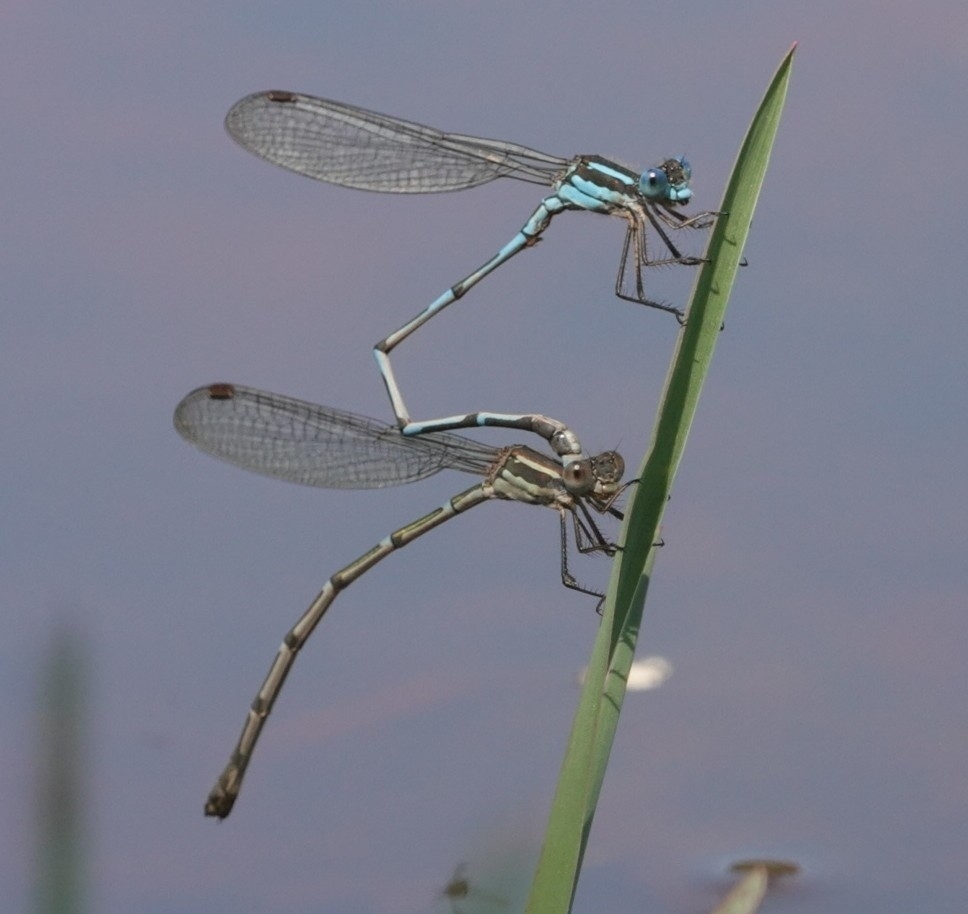
How to get involved
You can contribute by using iNaturalist to log photos or sound recordings of wild plants and animals you find anywhere in metropolitan Melbourne between Friday 26th of April to Monday 29th of April 2024. Start getting familiar with iNaturalist now and be ready to show the world the incredible biodiversity of Melbourne.
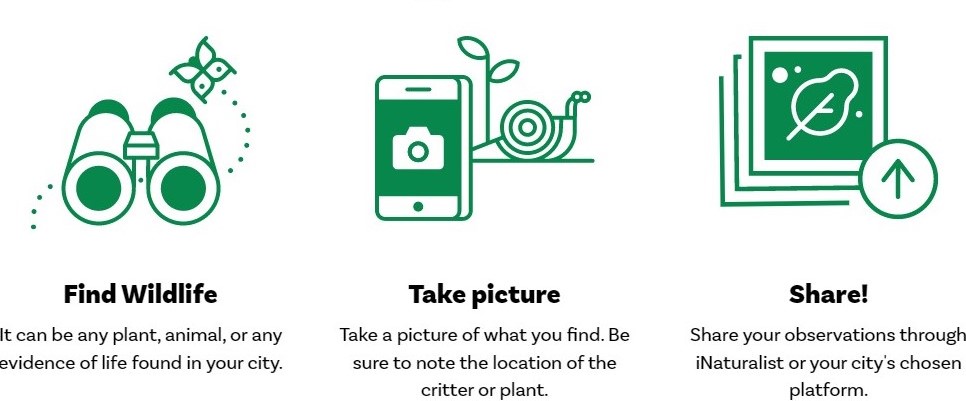
To learn more about how to use iNaturalist watch one of the many online webinar recordings, such as:
- A beginners guide for using iNaturalist by Thomas Mesaglio (thebeachcomber), a curator and forum moderator on iNaturalist, for GSB
- Advance tips for using iNaturalist by Thomas Mesaglio (thebeachcomber), a curator and forum moderator on iNaturalist, for GSB
- iNaturalist training webinar by ecologist Dr Luis Mata (on behalf of the 2021 City Nature Challenge collaboration).
What’s it like to participate in the City Nature Challenge by Luis Mata
The City Nature Challenge is a global event where people around the world contribute to science, simply by making photo and sound observations of plants, fungi, animals and other living things in cities and towns. Luis Mata is an ecologist and entomologist and has been uploading photos to iNaturalist for over ten years. He describes taking photos of nature as a privilege, one where he is the lucky recipient of the beauty of nature. “I don’t feel like these photos belong to me, I am lucky to have my camera, to be in this natural place and to capture this moment. I am happy to share my photos and if they can help to conserve nature, that is amazing. This is what citizen science is all about.”
Luis observes nature everywhere he goes but one group of insects (flat bugs) had eluded him. Despite trying hard to find them in their natural habitat for many years, he had only ever seen them in museum collections. Until one City Nature Challenge event. “I was spending the morning doing observations, just for fun and finally found them. In one urban green space in the City of Monash I found not one but two different species of this kind of bug under one piece of bark!”
Luis also describes what a great family activity this is and how you don’t need to be a trained scientist to contribute valuable information. “My son is a great little naturalist, he regularly points things out to me that I hadn’t even seen and loves the adventure. You also don’t need to be a trained scientist to participate in citizen science, a camera or a phone is all you need. A lot of people have an inherent interest in nature and a desire to learn about the world around us. Yet, the observations can be scientifically valuable. Professional scientists used to be the only ones going around observing and classifying species, but advances in technology now allows anyone to do this, anyone can contribute museum grade observations.”


Citizen scientist events 2024
Councils across metropolitan Melbourne are running activities during the four days of the Challenge to help you get involved and learn more about the nature around you:
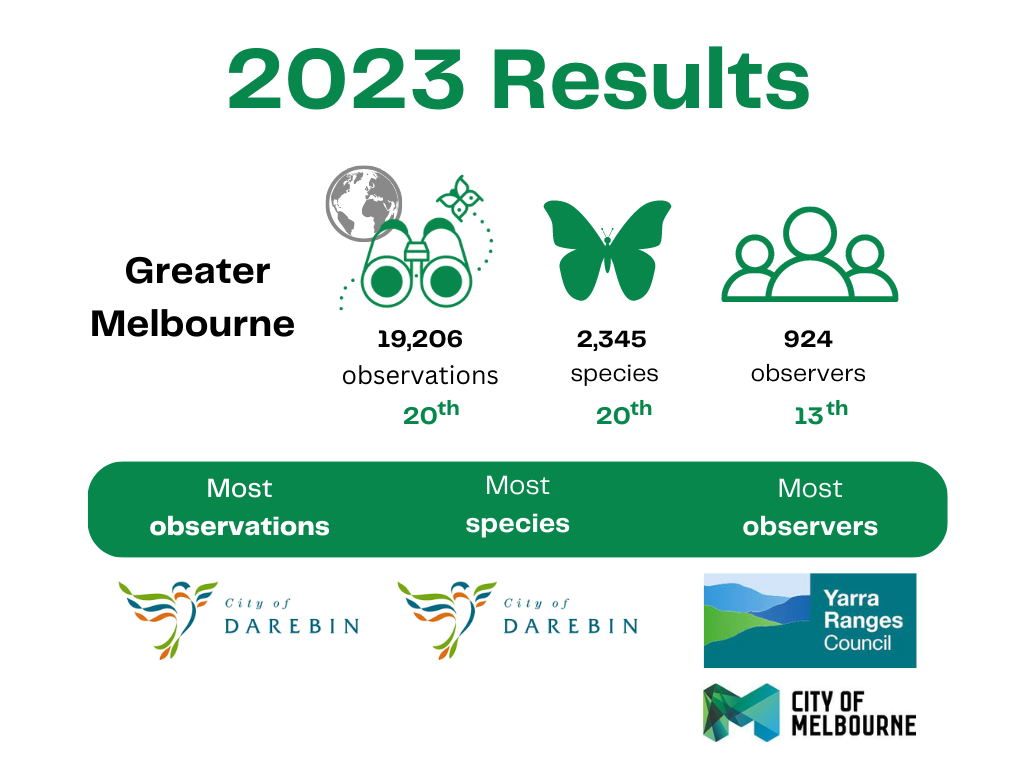
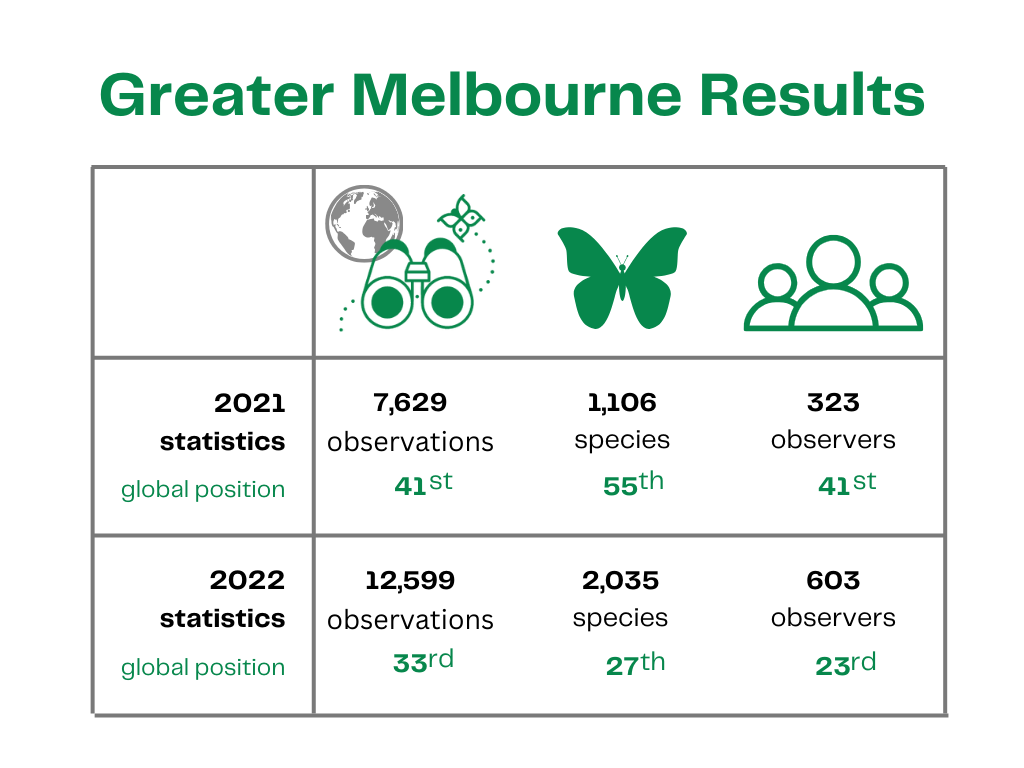
In 2024 the Greater Melbourne collaboration involves 25 councils, along with; • The Entomological Society of Victoria • Australian Citizen Science Association (Victoria chapter) • Field Naturalists Club of Victoria • Gardens for Wildlife Victoria • Hobson’s Bay Wetlands Centre • Latrobe University • Melbourne Water • University of Melbourne • Victorian Environmental Friends Network • Victorian National Parks Association • Yarra Riverkeeper Association
